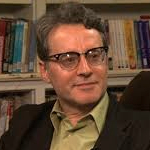Dr. Michael Rose is one of the world’s leading scientists in aging, biological immortality, and human evolution. He is Director and Professor at the Department of Ecology and Evolutionary Biology at the University of California, Irvine.
He has been doing research for 40 years and published over 275 Academic publications and authored 10 books including Does Aging Stop? and Evolutionary Biology of Aging.
FUN FACT:
Michael has been married 4 times
He has 6 kids
His wife is a psychiatrist and he reminds her of characters from Big Bang Theory
Huge prog fan
Background:
Dr. Michael Rose is a Professor in the Department of Ecology and Evolutionary Biology at the University of California, Irvine. His main area of work has been the evolution of aging. In 1991, he published Evolutionary Biology of Aging exploring a view of the subject based on antagonistic pleiotropy, the hypothesis that aging is caused by genes that have two effects, one acting early in life and the other much later. The genes are favored by natural selection as a result of their early-life benefits, and the costs that accrue much later appear as incidental side-effects that we identify as aging. Dr. Rose has also suggested that aging can stop in a latter stage of life.
Rose’s laboratory has conducted the longest-running artificial selection experiment designed to test the theory of antagonistic pleiotropy. Fruit flies (Drosophila melanogaster) are being bred for longevity by collecting eggs from the longest-lived flies in each generation. The experiment has run since 1981, and has produced flies with quadruple the original life span. The prediction of the antagonistic pleiotropy hypothesis was that these long-lived flies would have much lower fertility early in life. The result has been the opposite – that the long-lived flies actually lay more eggs at every stage of life. The long-lived flies show other weaknesses that would make them poor competitors in the wild, and perhaps these traits are the true areas of antagonistic pleiotropy. In 1997, Rose was awarded the Busse Research Prize by the World Congress of Gerontology. He has authored The Long Tomorrow: How Advances in Evolutionary Biology Can Help Us Postpone Aging which is one of 10 authored books.
Dr. Rose suggests that aging is a result of “declining forces of natural selection.” He points to studies of the demographic data in large-scale fruit fly experiments and actuarial data for humans which he believes support the hypothesis that acceleration in death rates can halt in later life. According to Rose, mortality-rate plateaus have not often been noticed in humans because they are only seen in specific-age cohorts of the very old. His proposed explanation is that at a stage of life beyond the potential to reproduce, the effect of natural selection is no longer falling as it has ‘bottomed out’. Rose suggests that if a decline in the effect of natural selection is responsible for aging, then when this decline finally ends, at post-reproductive age, aging could halt. He reasons it follows that aging is “not a cumulative process of progressive chemical damage, like rust, at late ages, aging can stop”.
According to Rose, relative to the age of reproductive maturity a transition to the late-life stage of life occurs much later in humans than in the populations of flies for which there are data. In humans, the ‘late-life’ stage of life is only reached at 90 years old, whereas the data for flies scaled to humans would predict a ‘late-life’ stage for humans at 40–50 years old. Rose suggests that human populations’ adoption of agriculture led to more children surviving to adulthood, and to reproduction occurring later in life. Agriculture is also hypothesized by Rose to have resulted in high population density, thereby increasing the range of ages not under selection.
Check out:
Please Leave a comment Below on one thing you found Most Inspiring or Helpful
**(I read and respond to all comments personally)**







Hi Rose,
I am Manjunath. I am from India. I am 25 year old. Please tell me how to stop or reduce aging.. is there any methods or steps to control complete aging?
Please give detailed description with regards to food, daily activities that I need to do from now to beat aging.